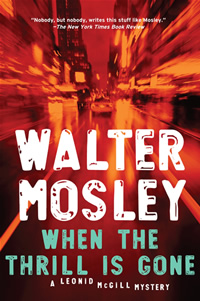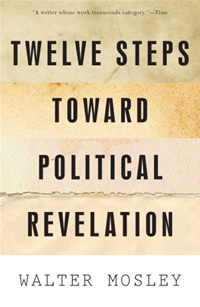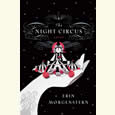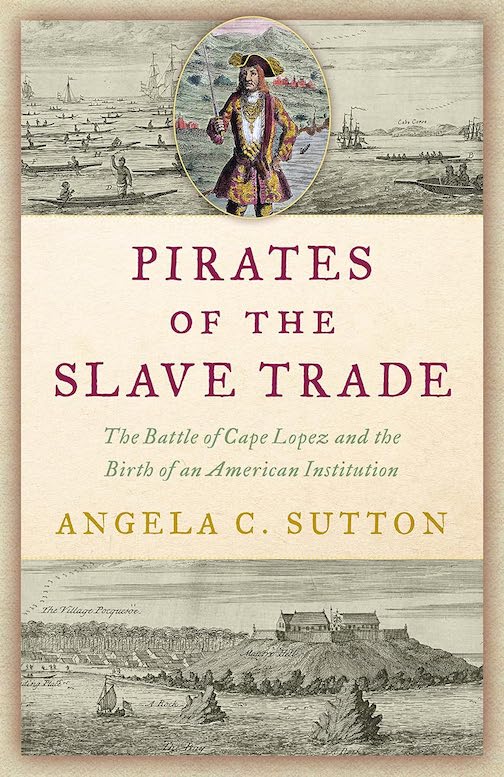Defeating Dementia
Walter Mosley talks with Chapter 16 about aging, politics, and the many jobs of a prolific writer
The title character of Walter Mosley’s The Last Days of Ptolemy Grey is a ninety-one-year-old man physically trapped in a filthy Los Angeles apartment and figuratively trapped within dementia, a lifetime of tragic memories flashing randomly before him. His radio plays a constant stream of classical music, while his television plays the constant babble of pundits: “His mind was like an open field over which these sounds and opinions passed unhindered,” Mosley writes. Ptolemy Grey’s circumstances begin to change when the shooting of a distant nephew suddenly thrusts a teenage girl into his life, along with a chance to reclaim his lost mental powers, and to right the wrongs of his past.
Mosley handles themes of family, aging, and death with the confidence and grace of an author who has published thirty-nine books and received the PEN USA Lifetime Achievement Award. What may be more stunning than the brilliance of this novel, however, is that it was published within six months of both Mosley’s political memoir, Twelve Steps Toward Political Revelation, and the latest installment of his popular Leonid McGill detective series, When the Thrill is Gone—which is also just one of the several Mosley creations being developed for television, film, and the stage. Add to this output his frequent essays and short stories in publications like The Nation and The New Yorker, and Walter Mosley emerges as one of the most prolific authors of contemporary literature, celebrated by readers and critics alike. In advance of his upcoming appearance in Nashville at the Southern Festival of Books, Mosley, who lives in New York but has close ties to Los Angeles, recently spoke with Chapter 16 from Hollywood about the many facets of his work.
 Chapter 16: How do you manage the many hats you wear as a writer?
Chapter 16: How do you manage the many hats you wear as a writer?
Mosley: I don’t really see it like that. We live in a country where work is defined, where there’s a “division of labor,” so everybody is kind of like on a production line. The production line is specialized—some people put on the left front tire on the Pinto, some people put the back windshield on the Pinto, some people stamp the serial code number on the engine. And that’s their job. But I kind of backed up a little bit. It’s more like I’m a mechanic. So I’m a writer, and as a writer I write all the time. I have different jobs. Sometimes I’m writing a story that’s a mystery—that talks about what the problems are, what the crime is, what the mystery is. Sometimes I’m talking really straightforward about politics. Sometimes I’m talking about deep emotional or societal issues. For me to write three different kinds of books, it’s not juggling for me; it’s just my job that day.
Chapter 16: Graham Greene used to say that he would write his thrillers as “entertainments,” but that he would work on his serious literature with more intent. It sounds like you would disagree with that approach.
 Mosley: I don’t think that, I don’t think that at all. It’s too bad Graham Greene thought that. That’s like learning Shakespeare said, “Well my comedies, they’re just light things, but the dramas are really about life.” He might have thought that, but in the end that wasn’t the case.
Mosley: I don’t think that, I don’t think that at all. It’s too bad Graham Greene thought that. That’s like learning Shakespeare said, “Well my comedies, they’re just light things, but the dramas are really about life.” He might have thought that, but in the end that wasn’t the case.
Chapter 16: As the author of a recent political monograph, you must have an opinion about the state of recent American politics, specifically the congressional fight over the debt ceiling.
Mosley: I think the argument in congress about the economy, on both sides of the aisle, is a lot of smoke and mirrors. I live in the wealthiest country in the world, and it is also the wealthiest country in the history of the world, and still the working woman and the working man who make up eighty percent of this country are in dire straits. That’s what I think. And the argument in congress about the debt ceiling, the argument in congress about unemployment, the argument in congress about opposition in relation to the rest of world— [it’s all] fueled by a bunch of people who work for the wealthy. That’s how they get elected, that’s how they pay their rent. I think it’s a travesty. But it’s a travesty on both sides of the aisle. The truth about where we’re sitting isn’t ever really exposed. Which is really what my book, Twelve Steps Toward Political Revelation, is all about.
Chapter 16: Speaking of Americans in dire straits, Ptolemy Grey is an immediately compelling character, one who is incredibly human but also illustrates the plight of the elderly in America. What was the genesis of this character?
Mosley: My mother experienced dementia for quite a while, for about eight years, until her death at the age of eighty-eight. And in dealing with my mother, I had to learn to speak in the language of dementia. A lot of people, professionals especially, were telling me, “Well, just tell her what to do,” and “Just take her out of her home; just put her into some kind of institution.” But, wait a second —she’s my mother. She may not be as clear as she once was, but she’s my mother and she saved my life more times than I can count when I was a child. Obviously I owed her that.
And so in learning to speak her language—to find out what she wanted, what she needed in order to live—I learned something. I wanted to be able to speak in that language and to create a character inside of a mind, not just a book about dementia but actually an adventure about somebody trying to get out of it. That’s where the book came from, and I’m really happy I was able to create such a character.
 Chapter 16: One of the book’s more impressive aspects is not just the point of view of a character suffering from dementia, but the way that point of view shifts.
Chapter 16: One of the book’s more impressive aspects is not just the point of view of a character suffering from dementia, but the way that point of view shifts.
Mosley: That shift is the central question of the novel. If you find yourself at the onset of dementia, and you have a choice—you can live the next ten years not knowing who you are, or what you’re doing, or having any control over your life; or you could live the next three months with lucidity—which one would you take? That’s the question posed to Ptolemy. He answers that question. His answer is heartbreaking in many ways, but it’s ecstatic also.
Chapter 16: Some reviewers have compared this novel to Daniel Keyes’s Flowers for Algernon. Were you conscious of that story as you crafted Ptolemy’s journey?
Mosley: It’s interesting, because I think in many ways it’s the inverse of that story. Flowers for Algernon is tragic, and Ptolemy is really heroic. Flowers for Algernon is where you get something and then you lose it. Ptolemy is where you had something, and you get it back again. And so there’s a relationship, but the relationship is polar opposites. With Algernon, you feel so bad at the end of that story. And at the end of Ptolemy, you feel wonderful, you feel: “Wow, he did it.”
Chapter 16: As in some of your previous books, the city of Los Angeles is such a strong setting that it is almost another character. How do you view the city?
Mosley: There are things that you have to have in novels. If you are writing about people’s lives, you have to talk about where they live. You have to talk about the politics and the economy and the structure of where they live. And you also have to talk about children. All of these things are part of our lives, and all of these things are here. Here is a guy who lives in an apartment, and the apartment is a reflection of his mind, and his mind is a deep well of confusion. You have a city that is really an enemy to Ptolemy, because the city doesn’t make room for really old people or children. They have to make room for themselves. They have to be protected in ways that the city doesn’t actually lend itself toward. You have this place that to some people might be a wonderful doorway to adventure, but for Ptolemy it’s a dangerous place.
 Chapter 16: But he does find a protector from an unlikely source.
Chapter 16: But he does find a protector from an unlikely source.
Mosley: And that protector happens to be a child, who also needs protection. They develop a mutual, symbiotic relationship, which becomes, for me, kind of wonderful.
Chapter 16: What’s next?
Mosley: You’re catching me in Hollywood right now, where I’m doing work. Just yesterday, I made a deal to start working on an Easy Rawlins series with one of the major networks, so I’m kind of excited about that. I just finished writing a new Leonid McGill novel, and I’m starting to work on a stage musical of Devil in a Blue Dress.
Chapter 16: Is there talk of bringing Ptolemy to the screen also?
Mosley: There has been, actually. I’ve been talking to Sam Jackson, who has been very interested in it, and I’ve also been talking to HBO. That’s the place I’d like to do it, but I’m not sure that’s where we’ll end up.
Chapter 16: Are you looking forward to your visit to Nashville?
Mosley: It will be great—I always loved Nashville. Nashville and Memphis are really favorites of mine.
Walter Mosley will discuss and sign copies of The Last Days of Ptolemy Grey at the 2011 Southern Festival of Books, held October 14-16 in Nashville.





